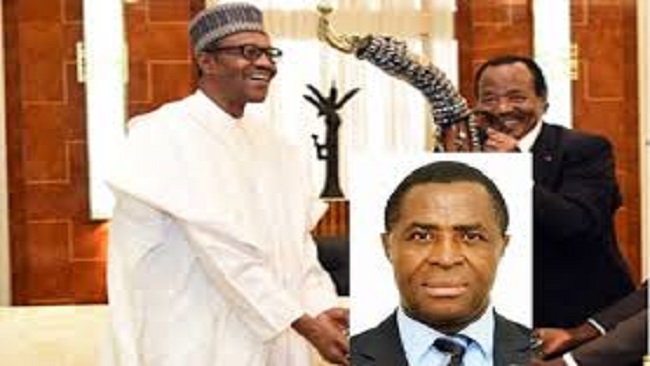Ambazonian, Biafra: Does suppressing agitations for separation mean bottling the bomb?
Secession related crises are fast becoming omnipresent in Africa and have led to the fragmentation and division of many nations. The unrest usually comes with devastating impacts largely responsible for the continent’s current economic and social retardation. From Nigeria’s Biafra to Cameroon’s Ambazonian, and Ethiopia’s Tigray, the daily heightened tensions show that many African countries are in an unholy union of strange bedfellows due to the forceful marriage of regions with different political and religious ideologies during the colonial era.
The forceful imposition by foreign governments denied the indigenous tribes the chance to decide their co-existence. Years after gaining independence, many of these countries have divided – in most cases – amidst distrust and bloodshed. From the Ethiopia-Eritrea crisis to the Sudan-South Sudan conflict, the self-determination movement across the continent is usually associated with war.
At the same time, there are countries that are yet undivided but highly polarized along ethnic and religious lines. Nigeria, for instance, has grappled with this since amalgamation in the early 1910s. Despite the obvious disunity, successive governments, both democratic and military, have insisted on the non-negotiability of the country, and every dissenting voice has been crushed with wanton brutality.
In 1967-1970, the Ojukwu led Biafra Army was fought tooth and nail by the Nigerian Army in a civil war that claimed between 500,000 to 2 million lives. Thousands of Eritrean soldiers and civilians also paid the ultimate price for the country’s independence from Ethiopia. Cases like these abound across the continent. But just when the leaders are expected to have learnt their lessons, they seem to be adamant in their approach. In instances where the dialogue should be explored, African leaders seem to favour militarization and brutality.
Despite that, new conflicts are emerging and old ones resurfacing. The Biafra agitation for instance has yet again been brought to the forefront in the past six years. Similarly, the anglophone part of Cameroon, popularly known as Ambazonia, remains resilient in its demand for an independent nation. Much like Nigeria, President Paul Biya’s government has been treating the issue with a forceful approach. In both cases, many civilians, including children and women, have been killed and economic activities ground to a halt at different times.
The Biafra case and other similar crises suggest secession agitation is more an ideological struggle. Suppressing the movement seems to always amount to bottling the bomb as they usually explode again sooner or later.
Many political scientists have attempted to dissect the root causes of the unrest in the content. Since most African countries were products of forced amalgamation, the indigenous people had little or no say over their nationhood. The heterogeneous nature of most of these countries is largely responsible for the recurring rancour and in many cases.
In Ethiopia, the Tigray region has been at the loggerheads with the central government, leading to around 10,000 deaths and over 230 massacres. It has also caused the worst famine in decades. Though this didn’t start as another self-determination conflict, it is fast tilting along that line as more Tigrayans are now seeing independence as a desirable option following months of unrest.
Given the emerging crises, referendums should perhaps be considered as the way out. But in some countries, such as Nigeria, there is no provision for such in their constitution. This begs the question: who’s afraid of a referendum? The answer may not be far fetched, looking at the political structures in most African countries. Wealth and political power distribution reek of inequality that usually favours some regions or tribes at the expense of others.
For instance, since the unification of British Southern Cameroon and French Cameroun, the country has been ruled by Francophone speaking leaders. Many of the central government’s policies are considered unfavourable to the English-speaking parts, leading to the call for their own independent state, Ambazonia.
In Nigeria, the crude oil that represents a huge part of government revenue comes from the Niger Delta region. But most of the oil blocks are owned by individuals from the northern part of the country. The oil-producing region is also one of the most impoverished and degraded in Nigeria, owing to decades of oil exploration which leaves the environment in a mess with fishing, locals’ primary source of income grounded due to oil spillage on their waters.
Similarly, the so-called political elites have consciously created a massive disparity between them and the masses. Poverty and illiteracy seem to have been weaponized and used in keeping the general public suppressed. These elites who benefit from the rot have ensured the status quo remains through unfavourable.
It is difficult to ascertain the exact war-related deaths and economic losses in Africa due to many unreported or underestimated cases. However, going by the conflict trends in the past few decades, we have had too many human and economic losses enough to make African leaders re-strategize their governance approach. The crises are also responsible for the current economic and social retardation across sectors. A recent UN report says 32 million Africans are forcibly displaced by repression and conflicts.
This has plunged the continent into a devastating refugee crisis. Many of the displaced persons also seek refuge outside the continent. Europe is one of the continents that has witnessed a surge in asylum seekers from Africa, due to the recent heightened of armed conflicts. Some of them access Europe through unconventional routes, such as boat rides through the Mediterranean Sea. They endanger their lives with the hope of securing permanent residence in their country of destination, such as Indefinite Leave to Remain in the UK. In the past seven years, more than 20,000 migrant deaths have occurred at sea.
How long would the continent continue to experience conflict-related devastations before long-lasting solutions are brought to the fore? Perhaps, it is high time African countries re-negotiated their coexistence and started embracing peaceful dissolution where living together brings more problems than opportunities.
Source: Defenceweb





